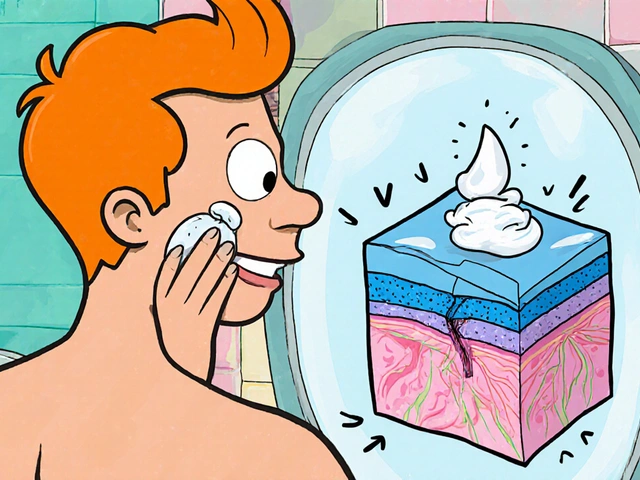Sweat: What’s Normal, What’s Not, and How to Control It
Sweating keeps you cool and helps your body work right. But when sweat is heavy, smells bad, or shows up at odd times, it becomes a hassle. This page gives straight answers: why sweat happens, common triggers, simple fixes you can try today, and when to see a doctor.
Why you sweat and common causes
Your body sweats to cool down, flush toxins, and respond to stress. Heat, exercise, spicy food, and anxiety are normal triggers. Certain meds — like some antidepressants, diabetes drugs, and fever reducers — can raise sweating. Hormone changes (menopause), infections, and conditions such as hyperthyroidism or low blood sugar also cause extra sweat. Night sweats that soak sheets, sudden heavy sweating with weight loss or fever, or sweating only on one side of the body are red flags worth checking out.
Skin issues can follow sweat. Damp skin is a breeding ground for fungal infections like jock itch and yeast rashes. If you notice itching, redness, or a persistent rash where sweat collects, treat it early and talk to a clinician if it won’t clear.
Practical, everyday ways to cut sweat and odor
Start with clothing: pick loose, breathable fabrics (cotton, merino, or moisture-wicking blends) and change sweaty clothes quickly. For shoes, rotate pairs and use breathable socks. Shower soon after heavy sweating and dry skin completely before dressing.
Antiperspirants are the first line of defense. Apply at night to clean, dry skin for best effect. If store brands don’t help, prescription-strength antiperspirants (aluminum chloride hexahydrate) can make a big difference.
Simple lifestyle tweaks help too: avoid known food triggers (caffeine, very spicy meals), manage stress with short breathing breaks, and keep room temps cooler. For underarm odor, gentle scrubs or antibacterial washes can reduce bacteria that cause smell.
When over-the-counter options fail, medical treatments exist. Oral medications like glycopyrrolate or topical prescriptions can reduce sweating. Botulinum toxin (Botox) injections are effective for underarms, palms, and soles. For more permanent reduction, miraDry or surgical options are available but come with risks; discuss pros and cons with a specialist.
If sweating is linked to meds you take, talk with your prescriber before stopping anything. Small dose changes or switching to an alternative medication might fix the issue.
Finally, don’t ignore night sweats or sudden changes in sweating pattern. These can point to infections, hormonal problems, or other medical issues. If you’re losing sleep, losing weight without trying, or have fevers along with sweating, schedule a checkup.
Sweat is normal — but not when it controls your life. Try the practical tips above, use stronger treatments when needed, and see a doctor if sweating comes on suddenly or changes your daily routine.




